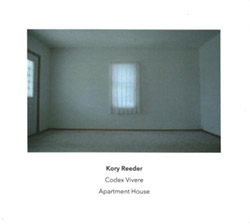
A beautifully unfolding story in connected works forming a codex from Texas composer and Wandelweiser artist Kory Reeder, a long form work performed by the UK Apartment House Ensemble in a septet of strings, winds and piano, each section creating a loose narrative ark through several notational strategies envisioned with characters, scenes, diversions, and digressions.
In Stock
Quantity in Basket: None
Log In to use our Wish List
Shipping Weight: 3.00 units
EU & UK Customers:
Discogs.com can handle your VAT payments
So please order through Discogs
Sample The Album:
Heather Roche-bass clarinet
Emma Williams-bass flute
Anton Lukoszevieze-cello
Kerry Yong-piano
Chihiro Ono-viola
Gordon MacKay-violin
Mira Benjamin-violin
Click an artist name above to see in-stock items for that artist.
Label: Another Timbre
Catalog ID: at194
Squidco Product Code: 32222
Format: CD
Condition: New
Released: 2022
Country: UK
Packaging: Cardboard Gatefold
Recorded at Goldsmiths Music Studio, in London, UK, in December, 2021, by Simon Reynell.
Another Timbre Interview with Kory Reeder
Before we talk about Codex Vivere, can you tell us a bit about your background: where do you come from, and how did you come to experimental music?
Originally I'm from Nebraska, but I'm currently based out of Denton, Texas.
I don't remember the first time I wrote a song or anything, but I have distinct memories of being 8 or 9 years old and taking my dad's guitar amps and pedals and just letting them feedback while playing around and twisting knobs. I'm sure it sounded more annoying than anything, but there's probably something to that. I spent a long time in bands and the Nebraska DIY punk and hardcore scene, while at the same time playing double bass since I was 9 or 10 years old in orchestras; playing in jazz groups; wind and marching bands; musicals, etc. So I've always had a lot of music and a lot of different styles around me. As far as getting into experimental music specifically, I went through that well-known phase of being a young contrarian and actively sought out the weirdest and wildest things I could. Being the only kid with blue hair in a youth orchestra in rural Nebraska, hearing pieces like "Threnody" or "Black Angels" was pretty compelling and from there the internet was my guide. I didn't really start writing "contemporary music" until my undergrad studying with Darleen (Cowles) Mitchell who opened me up to actually writing this music and really let me go unhinged with it. At the same time, I was playing in a touring hardcore band and always on the road, I was still playing in orchestras, etc. So I think all the dust just settled and this is what I came out really liking and wanting to do.
I first came across your music with your debut CD, which was a very strong release on the Wandelweiser label. Do you think of yourself as being in some way aligned with the Wandelweiser group of composers?
I think it depends on how you define the alignment. If we're talking about the aesthetics, I think this is somewhat superficial. Of course I love the music and there is certainly a connection there, but I'm not so much interested in associating with any particular group based on sound and aesthetics alone (I honestly think a lot of Wandelweiser music pairs nicely with harsh noise as much as it does with early music). If we're talking about the group of folks associated with Wandelweiser, then I think we're on to something: I've met so many amazing people through the extended Wandelweiser network and that's really indispensable to me. I honestly haven't seen many Wandelweiser pieces performed in real life without somehow being involved in the production, so that bigger expanse of folks sharing music, the accessibility of the material online, seeing folks collaborating and myself getting to work with folks on other projects has been something really special. The word "community" can have such a corporate sound, but so many folks I've met through the Wandelweiser network have become real artistic comrades that it's hard to think of a better term. So I'm happy to be somehow affiliated; having my scores available on the Wandelweiser page and opening up my work to folks who might stumble onto it and maybe get something out of it just feels like carrying on that thing that mattered so much to me.
A lot of your pieces have long durations: are you particularly drawn to long-form works, and if so, why?
I do like long pieces. Part of it is giving the music room to breathe and take its time, the other is the idea of giving a complete artistic statement. There's also a question of what you mean by "long." For some folks a 10-minute piece is a long piece. For pieces in my "Grid Series" there's as much room and time to play as the players want so it's situation-dependant. My longest piece "A Timeshare" is 9 hours, and I'm currently working on a 24-hour piece. In my opinion, a day is probably the longest you can go and still call it a comprehensible thing, so we'll see how that goes and maybe I'm wrong about that but I'm excited to find out. You once joked "when God gave us CDs he had a point: 75 minutes of anything is enough" and I really like this idea. On the one hand there's an upper-limit, but on the other this idea establishes what a "thing" might be. I've also heard a whole bunch of great music that's only about a minute, so there's a lot of ways at looking at the situation and a whole bunch of people much smarter than I have waxed-poetic on the perception and affect of time which I'm not brave enough to go into here.
In the cases of my more extreme stuff like "A Timeshare", the duration was more about how we spend time together, and specifically how I spend musical time with the 4 friends on that recording and that's more the point of the piece than the duration itself. Writing a ridiculously long piece is fun, but actually spending time with my friends and realizing it was much more valuable. The piece is just a part of that.
For Codex Vivere specifically, it was a matter of thinking about this whole project as a single "thing." You and I had been talking about some pieces and landed on the idea of doing something new for a disc. Well, a disc has the 75-minute limit, so that's the framework to start thinking about what a piece can be. I wasn't particularly interested in doing a disc of unrelated chamber works or something, so the whole format or situation really informed what I wanted to do. It also took us about 9 hours to record Vivere, and although the final product is a 75-minute disc, that day we spent together was pretty great and just as artistically satisfying as a long-form performance or piece could be.
Did you have any specific aims or intentions when you started composing the piece?
The piece is part of a series of Codex pieces, the first is "Codex Praxis", "Vivre" is the second, and "Codex Symphonia" is the third. Each of these pieces contains a loose narrative arch and I think about them as books in a way, and they all each take this idea in a different fashion. "Codex Praxis" is put together based on an amalgamation of liturgical drama, and bestiaries having been commissioned for a gallery opening of medieval illuminated manuscripts. "Symphonia" contains references to external musical works and is more autobiographical. "Vivere" was written through the lens of modern literature in which the "story" of the piece comes in two movements "II: First Part" and "VIII: Second Part." However, the story is played out with an introduction, a very long series of diversions, and a somewhat fleeting apology at the end.
Additionally, the Codex series demonstrates an instance of "nested" series: each Codex work contains a movement that is a part of the "Grid Series", for example.
I'm interested in exploring modes of creating. When writing a piece down or making something that uses a score, one of the most obvious of these modes is the notation. On the one hand, this is a tool for communication, but I think this is a rather unfortunate and often fetishized feature that too often turns the work into a noun or just a document. In many ways, I think this distracts from the point of music is; music is a verb, it's a thing that is done. The notation is a means of accessing that thing, but we are given a choice to treat it as a mathematical formula, or an invitation to participate. I would much rather ask you to come with me and join me in the adventure of the music than always tell you what to do.
Here, we are beginning to ask questions on the nature of creation. How does one develop a technique that balances my selfish interests of aesthetic taste, and the desire to do a thing together? This isn't a particularly unique question, and in many ways, the only answer to explore and to try and to fail and to adapt. Vivre uses several notational strategies (some movements are more explicate some more implicate), and each movement is an investigation into these different ways of navigating musical ideas and material through the lens of my aesthetic/formal interests and taste. But these are all verbs--points of action, a participatory way of life. This piece is at least a nudge to try; to find some beauty in the act of doing, and it is my hope that this piece, something as book or a story with characters, and scenes, and diversions, and digressions, may be a beautiful act itself.

The Squid's Ear!
Artist Biographies
• Show Bio for Heather Roche "Born in Canada, clarinetist Heather Roche trained in England, lived in Germany for 7 years and now lives in London. She has performed at some of the major European festivals, including musikFest (Berlin), BachFest (Leipzig), Musica Nova (Helsinki), Acht Brücken (Cologne), the International Computer Music Conference (Huddersfield, Ljubljana), the Dias de Música Electroacústica (Seia, Portugal) and the Agora Festival (Ircam, Paris). She has also performed solo programmes at the Zagreb Music Biennale, the Huddersfield Contemporary Music Festival, the New York Electroacoustic Symposium, at CIRMMT (Montreal), Unerhörte Musik (Berlin), Eavesdropping (London), and with the Birmingham Electroacoustic Sound Theatre (BEAST). She has performed with ensembles and orchestras including Musik Fabrik (Cologne), the WDR Orchestra (Cologne), mimitabu (Gothenburg), the London Symphony Orchestra (London), ensemble Garage (Cologne), ensemble interface (Berlin), the Riot Ensemble (London), the Alisios Camerata (Zagreb), and ensemble proton (Bern). She also plays across the UK in a trio with Carla Rees (flutes) and Xenia Pestova (piano) and in 2015 formed an duo with the accordionist Eva Zöllner, with whom she has played across Germany, the UK and in Portugal. She is a founding member of hand werk, a 6-person chamber music ensemble based in Cologne, and worked with the group from 2010-2017. She has solo CDs out on the HCR/NMC and Métier labels. Please see the Discography for further details. In 2014 she was awarded a DIVA (Danish International Visiting Artists Fellowship), and lived in Copenhagen for two months. Since 2016 she has acted as the Reviews Editor for TEMPO, a quarterly journal for contemporary music published by Cambridge University Press. Her website is host to one of the most widely read new music blogs on the Internet. In 2017 it had 75,000 hits from around the world. She successfully crowdfunded in 2014 in order to host her first composition competition. Six young composers were chosen out of 270 applicants to write new pieces, which were premiered in 2016. She is a fervent advocate of collaboration, and her PhD research at the University of Huddersfield (under the supervision of Dr. Philip Thomas) explored the nature of dialogue within performer-composer relationships. She has given workshops in instrumental technique and/or iPad use in performance all over Europe, for example in London, Munich and Copenhagen. Heather completed her Masters of Music (Orchestral Training) in 2006 at the Guildhall School of Music and Drama in London, studying under Joy Farrall and Laurent Ben Slimane, in addition to conducting with Sian Edwards. Following her degree she completed residencies with the International Ensemble Modern Academy, at IMPULS in Graz and with ensemble recherche in Freiburg, the Darmstadt Summer Courses 2008 and 2010 and the International Ensemble Modern Academy in Innsbruck, Austria. She has performed in masterclasses with Michael Collins, Ernesto Molinari and Shizuyo Oka, to name a few. She completed her BMus in 2005 at the University of Victoria, Canada, studying under Patricia Kostek." ^ Hide Bio for Heather Roche • Show Bio for Emma Williams Emma Williams: flute & piccolo player, freelance orchestral musician, therapeutic functional movement, pelvic health coach & yoga teacher. "I trained at the Royal College of Music as a flautist and have been working as a freelance performing musician and teacher for over 25 years. I came to yoga in my late 20's having had to cope with recurring fractures and broken bones due to Polyostotic Fibrous Dysplasia, a rare soft bone condition which I was born with. As well as being a freelance performing musician, I am also a qualified Hatha yoga teacher with a particular interest in anatomy and breathing. My passion is women's health, supporting and informing women about pelvic health." ^ Hide Bio for Emma Williams • Show Bio for Anton Lukoszevieze "Cellist Anton Lukoszevieze (born 1965 in the UK) is one of the most diverse performers of his generation and is notable for his performances of avant-garde, experimental and improvised music. Anton has given many performances at numerous international festivals throughout Europe and the USA (Maerzmusik, Donaueschingen, Wien Modern, GAS, Transart, Ultima, etc.etc.). He has also made frequent programmes and broadcasts for BBC Radio 3, Danish Radio, SR2, Sweden, Deutschland Rundfunk, WDR, Germany and ORT, Austria. Deutschlandfunk, Berlin produced a radio portrait of him in September, 2003. Anton has also performed concerti with the City of Birmingham Symphony Orchestra at the 2001 Aldeburgh festival and the Netherlands Radio Symphony Orchestra. He has collaborated with many composers and performers including David Behrman, Alvin Lucier, Amnon Wolman, Pierre Strauch, Rytis Mazulis, Karlheinz Essl, Helmut Oehring, Christopher Fox, Philip Corner, Alvin Curran, Phill Niblock and Laurence Crane, He is unique in the UK through his use of the curved bow (BACH-Bogen), which he is using to develop new repertoire for the cello. From 2005-7 he was New Music Fellow at Kings College, Cambridge and Kettles Yard Gallery. Anton is the subject of four films (FoxFire Eins) by the renowned artist-filmmaker Jayne Parker. A new film Trilogy with compositions by Sylvano Bussotti, George Aperghis and Laurence Crane premieres at The London Film Festival, October 2008. In November will premiere a new hour long work by Christopher Fox for cello and the vocal ensemble Exaudi commissioned by the Huddersfield Contemporary Music Festival and will also present new solo works for cello and live electronics. Anton is also active as an artist, his work has been shown in Holland (Lux Nijmegen), CAC, Vilnius, Duisburg (EarPort), Austria, (Sammlung Essl), Wien Modern, The Slade School of Art, Kettles Yard Gallery, Cambridge Film Festival and Rational Rec. London. His work has been published in Musiktexte, Cologne, design Magazine and the book SoundVisions (Pfau-Verlag, Saarbrucken, 2005). Anton Lukoszevieze is founder and director of the ensemble Apartment House, a member of the radical noise group Zeitkratzer and recently made his contemporary dance debut with the Vincent Dance Company in Broken Chords, Dusseldorf." ^ Hide Bio for Anton Lukoszevieze • Show Bio for Kerry Yong "Kerry is a musician who lives in east London. He trained as a pianist and now also performs on keyboards and live electronics. Kerry has performed at Audiograft, Chisenhale Arts Club, Kämmer Klang, Rational Rec, Borealis Festival, Huddersfield Contemporary Music Festival, ISCM World Music Days, Kings Place, City of London Festival, Music We'd Like To Hear, Nonclassical and in groups Apartment House, ELISION, Plus-Minus Ensemble and Ensemble Offspring. Kerry studied piano with Stephanie McCallum at the University of Sydney (where he also studied composition) and at the Sydney Conservatorium of Music. He completed a doctorate at the Royal College of Music where he studied piano with Andrew Ball and researched Performance practices of music for piano with electroacoustics. He has also dabbled with the other side, playing with bands Apopalyptics, Casiokids and Half-handed Cloud and the Welcome Wagon. Kerry also directs music at Grace Church Hackney (which meets in Hoxton), where they are happy to use ancient chants, traditional hymns and new works with choirs, bands, electronics, objects and the like." ^ Hide Bio for Kerry Yong • Show Bio for Chihiro Ono "Japanese-born violinist Chihiro Ono use music as a tool to explore human abilities, link people and places, and open human beings' minds." ^ Hide Bio for Chihiro Ono • Show Bio for Gordon MacKay "Violinist Gordon MacKay was a member of the National Youth Orchestra of Scotland before gaining a music degree at the University of London. He is currently a member of contemporary group Apartment House, and has also performed with the Kreutzer Quartet, as well as featuring as a guest player with Lontano and the London Symphony Orchestra. He has recorded a solo violin work by Sylvano Bussotti for BBC Radio 3, and performed a violin duo by Effy Efthymiou with Madeleine Mitchell, which was shortlisted for the Ivan Juritz Prize in 2018." ^ Hide Bio for Gordon MacKay • Show Bio for Mira Benjamin "Mira Benjamin is a Canadian violinist, researcher and new-music instigator. She performs new and experimental music, with a special interest in microtonality & tuning practice. She actively commissions music from composers at all stages of their careers, and develops each new work through multiple performances. Current collaborations include new works by Anna Höstman, Scott McLaughlin, Amber Priestley, Taylor Brook and James Weeks. Since 2011, Mira has co-directed NU:NORD - a project-based music and performance network which instigates artistic exchanges and encourages community building between music creators from Canada, Norway & the UK. To date NU:NORD has engaged 79 artists and commissioned 62 new works. Through this initiative, Mira hopes to offer a foundation from which Canadian artists can reach out to artistic communities overseas, and provide a conduit through which UK & Norwegian artists can access Canada's rich art culture. Originally from Vancouver, British Columbia, Mira lived for ten years in Montréal, where she was a member of Quatuor Bozzini. Since 2014 she has resided in London (UK), where she regularly performs with ensembles such as Apartment House, Decibel, and the London Contemporary Orchestra Soloists, and is currently the Duncan Druce Scholar in Music Performance at the University of Huddersfield. Mira is the recipient of the 2016 Virginia Parker Prize from the Canada Council for the Arts. The prize is awarded annually to a Canadian musician in recognition of their contribution to the artistic life in Canada and internationally." ^ Hide Bio for Mira Benjamin
7/15/2025
Have a better biography or biography source? Please Contact Us so that we can update this biography.
7/15/2025
Have a better biography or biography source? Please Contact Us so that we can update this biography.
7/15/2025
Have a better biography or biography source? Please Contact Us so that we can update this biography.
7/15/2025
Have a better biography or biography source? Please Contact Us so that we can update this biography.
7/15/2025
Have a better biography or biography source? Please Contact Us so that we can update this biography.
7/15/2025
Have a better biography or biography source? Please Contact Us so that we can update this biography.
7/15/2025
Have a better biography or biography source? Please Contact Us so that we can update this biography.
Track Listing:
1. Intermezzo 7:45
2. First Part 11:52
3. Pause: Field 4:14
4. Violin Concerto 10:43
5. Interlude: Essay 7:57
6. Piano Concerto 12:58
7. Pause: Plains 4:20
8. Second Part 7:59
9. Elegy 5:09
Compositional Forms
London & UK Improv & Related Scenes
West Coast/Pacific US Jazz
Septet recordings
Ambient, Minimal, Reductionist, Onky Sound, &c.
New in Compositional Music
Last Copy of Items that will not be restocked...
Search for other titles on the label:
Another Timbre.

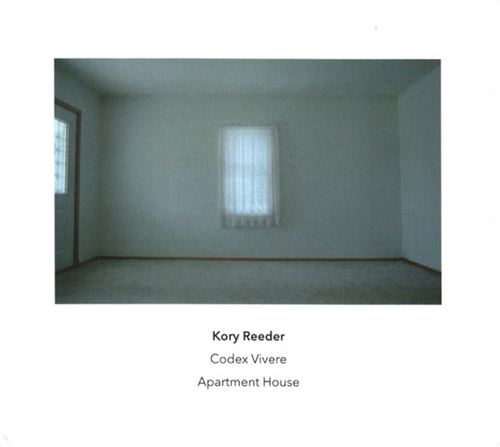


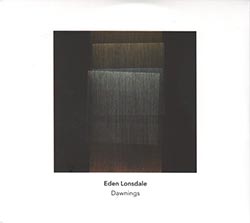


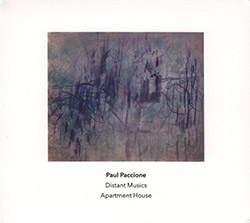


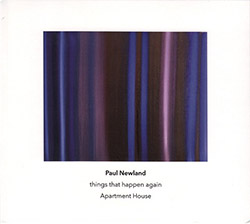

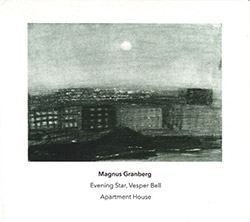
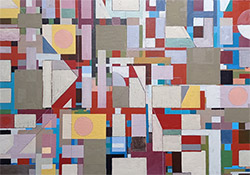

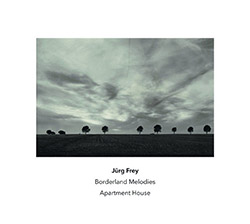


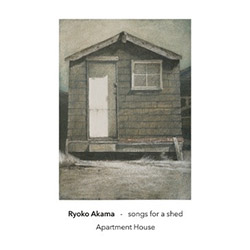



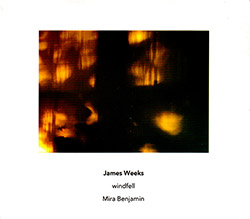

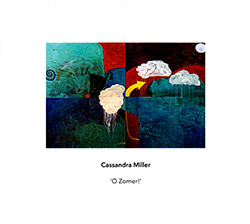







![BlueRing Improvisers: Materia [2 CDs]](https://www.teuthida.com/productImages/misc4/36513.jpg)








![Wheelhouse (Rempis / Adasiewicz / McBride): House And Home [VINYL]](https://www.teuthida.com/productImages/misc4/36462.jpg)
![+DOG+: The Light Of Our Lives [2 CDs]](https://www.teuthida.com/productImages/misc4/36009.jpg)


![Parker, Evan / Jean-Marc Foussat: Insolence [VINYL]](https://www.teuthida.com/productImages/misc4/36398.jpg)










![Deupree, Jerome / Sylvie Courvoisier / Lester St. Louis / Joe Morris: Canyon [2 CDs]](https://www.teuthida.com/productImages/misc4/36404.jpg)



![Eventless Plot | Haarvol: The Subliminal Paths [CASSETTE + DOWNLOAD]](https://www.teuthida.com/productImages/misc4/36232.jpg)










![Eventless Plot | Francesco Covarino: Methexis [CASSETTE + DOWNLOAD]](https://www.teuthida.com/productImages/misc4/36231.jpg)



![Das B (Mazen Kerbaj / Mike Majkowski / Magda Mayas / Tony Buck): Love [VINYL]](https://www.teuthida.com/productImages/misc4/36329.jpg)


![Eternities: Rides Again [CASSETTE]](https://www.teuthida.com/productImages/misc4/36247.jpg)
![Lopez, Francisco: Untitled (2021-2022) [2 CDs]](https://www.teuthida.com/productImages/misc4/36438.jpg)






![Money : Money 2 [2 CDs]](https://www.teuthida.com/productImages/misc4/35894.jpg)




![Klinga, Erik: Elusive Shimmer [VINYL]](https://www.teuthida.com/productImages/misc4/36258.jpg)
![CHANGES TO blind (Phil Zampino): Volume 9 - I Wave on a Fine Vile Mist [CD + DOWNLOAD]](https://www.teuthida.com/productImages/misc4/36061.jpg)

![Wallmart / Rubbish: Asset Protection [split CD]](https://www.teuthida.com/productImages/misc4/35900.jpg)


![+Dog+: The Family Music Book Vol. 5 [2 CDs]](https://www.teuthida.com/productImages/misc4/35897.jpg)
![Kuvveti, Deli : Kuslar Soyledi [CASSETTE w/ DOWNLOAD]](https://www.teuthida.com/productImages/misc4/36107.jpg)

![Brown, Dan / Dan Reynolds: Live At The Grange Hall [unauthorized][CASSETTE]](https://www.teuthida.com/productImages/misc4/36245.jpg)






![Palestine, Charlemagne / Seppe Gebruers: Beyondddddd The Notessssss [VINYL]](https://www.teuthida.com/productImages/misc4/36206.jpg)
![Palestine, Charlemagne / Seppe Gebruers: Beyondddddd The Notessssss [NEON GREEN VINYL]](https://www.teuthida.com/productImages/misc4/36207.jpg)

![Laubrock, Ingrid: Purposing The Air [2 CDs]](https://www.teuthida.com/productImages/misc4/35639.jpg)

![Yoko, Ono / The Great Learning Orchestra: Selected Recordings From Grapefruit [2 CDs]](https://www.teuthida.com/productImages/misc4/35841.jpg)









![Zorn, John / JACK Quartet: The Complete String Quartets [2 CDs]](https://www.teuthida.com/productImages/misc4/35609.jpg)


![Sorry For Laughing (G. Whitlow / M. Bates / Dave-Id / E. Ka-Spel): Rain Flowers [2 CDS]](https://www.teuthida.com/productImages/misc4/35985.jpg)

![Rolando, Tommaso / Andy Moor : Biscotti [CASSETTE w/ DOWNLOADS]](https://www.teuthida.com/productImages/misc4/36106.jpg)


![Electric Bird Noise / Derek Roddy: 8-10-22 [CD EP]](https://www.teuthida.com/productImages/misc4/35970.jpg)








![Elephant9 : Mythical River [VINYL]](https://www.teuthida.com/productImages/misc4/34624.jpg)



![Elephant9 with Terje Rypdal: Catching Fire [VINYL 2 LPs]](https://www.teuthida.com/productImages/misc4/35355.jpg)
![Deerlady (Obomsawin, Mali / Magdalena Abrego): Greatest Hits [VINYL]](https://www.teuthida.com/productImages/misc4/34876.jpg)







![Surplus 1980: Illusion of Consistency [CD]](https://www.teuthida.com/productImages/misc4/35069.jpg)
![Staiano, Moe: Away Towards the Light [VINYL + DOWNLOAD]](https://www.teuthida.com/productImages/misc4/35037.jpg)
![Coley, Byron: Dating Tips for Touring Bands [VINYL]](https://www.teuthida.com/productImages/misc4/17906.jpg)

![Lost Kisses: My Life is Sad & Funny [DVD]](https://www.teuthida.com/productImages/misc4/lostKissesDVD.jpg)